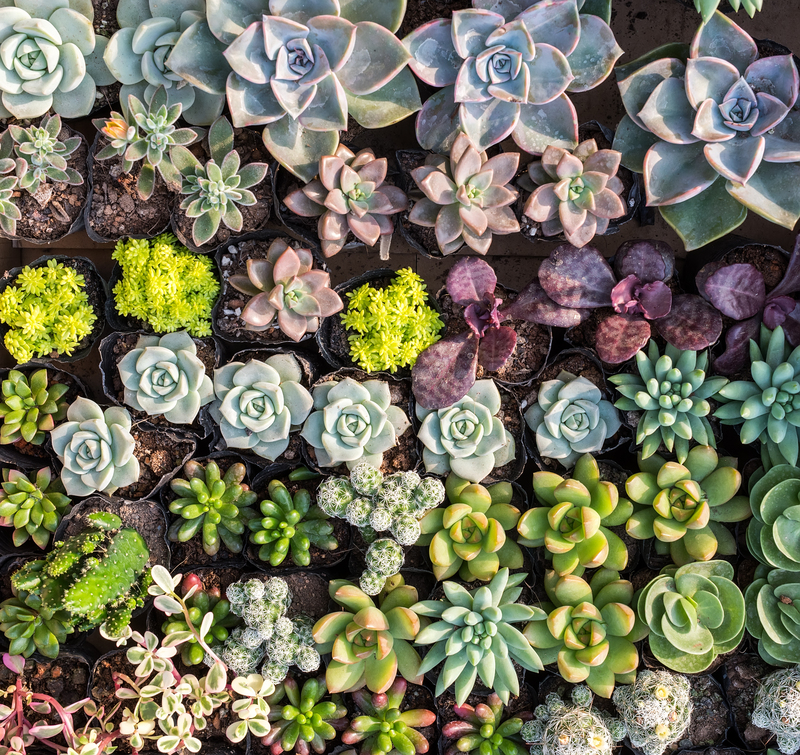Crafting Nutrient-Dense Soil from Organic Residues
Posted on 13/06/2025
Crafting Nutrient-Dense Soil from Organic Residues: An In-Depth Guide for Gardeners
Creating nutrient-dense soil from organic residues is one of the most sustainable, eco-friendly, and economically viable ways to ensure a flourishing garden or productive farm. In this comprehensive article, you will discover expert techniques, practical advice, and scientific insights on how to turn everyday organic waste into rich, fertile soil that supports healthy plant growth and a thriving ecosystem.

Why Nutrient-Rich Soil is the Foundation of Every Successful Garden
A garden is only as productive as the soil it's built upon. By cultivating nutrient-dense soil using organic residues, gardeners can:
- Improve plant health and resilience to pests and diseases
- Enhance soil structure for better water retention and aeration
- Reduce dependency on chemical fertilizers and pesticides
- Encourage beneficial microbial activity in the soil
- Support environmental sustainability by recycling organic materials
In this article, we'll explore how you can transform kitchen scraps, yard waste, and other organic residues into a potent resource--nutrient-dense soil for robust plants and a productive garden.
Understanding the Science Behind Soil Fertility
What Makes Soil Nutrient-Dense?
Nutrient-dense soil contains a balanced mix of essential macro and micronutrients, along with organic matter that promotes microbial life and beneficial insects. The critical nutrients include:
- Nitrogen (N) - Vital for leafy, green growth
- Phosphorus (P) - Key for root development and blooms
- Potassium (K) - Essential for overall plant vigor and disease resistance
- Secondary nutrients like calcium, magnesium, and sulfur
- Micronutrients such as iron, boron, copper, zinc, and manganese
Organic residues supply many of these vital elements, and when properly composted or processed, can boost the fertility of your soil to support healthy plant production.
The Role of Organic Matter
Organic matter refers to decomposed plant and animal materials that enrich the soil with nutrients and structure. Adding organic residues to soil:
- Improves moisture retention
- Enhances soil aeration
- Supports beneficial microbial life
Organic residues such as kitchen waste, leaves, grass clippings, and animal manure are some of the most valuable resources for building nutrient-rich soils naturally.
Sourcing Organic Residues for Composting
Before you start crafting rich, nutrient-dense soils, you need a reliable source of organic materials. Common sources include:
- Kitchen scraps: vegetable peels, coffee grounds, eggshells, fruit rinds
- Garden trimmings: leaves, grass clippings, faded plants, weeds (if not gone to seed)
- Livestock manure: well-aged manure from chickens, cows, horses, rabbits
- Wood chips and sawdust: for carbon balance
- Shredded newspaper or cardboard: as a bulking agent, provided they are free from inks and dyes
It's key to maintain a good balance between "greens" (nitrogen-rich materials) and "browns" (carbon-rich materials) when composting. This creates the ideal environment for microbes to break down organic residues efficiently.
The Art and Science of Composting: Transforming Waste into Wealth
What is Composting?
Composting is the controlled decomposition of organic materials by microorganisms under aerobic conditions. This natural process produces a humus-like substance (compost) that's packed with nutrients and is perfect for building fertile soil from organic residues.
The key steps in composting:
- Collecting and mixing organic materials
- Providing the right environment: moisture, aeration, and temperature
- Turning the compost pile periodically to keep it aerobic
- Letting the pile mature until residues transform into crumbly, dark brown compost
Types of Composting Systems
The best composting method depends on your available space, climate, and garden needs. Common systems include:
- Traditional compost piles - Stack alternate layers of greens and browns in a pile and turn regularly.
- Compost bins - Enclosed bins help control moisture and heat, and are easier for small spaces.
- Vermicomposting - Use red wiggler worms to convert kitchen scraps into castings (extremely rich in nutrients and beneficial microbes).
- Bokashi composting - An anaerobic fermentation method that uses bran inoculated with beneficial microbes, allowing even meat and dairy residues to be processed.
Tips for Successful Composting
- Shred or chop materials to speed up decomposition
- Maintain moisture - Compost should be as damp as a wrung-out sponge
- Turn the pile every few weeks to introduce oxygen
- Add a diverse array of residues to ensure a balance of nutrients
- Avoid adding diseased plants, weed seeds, or non-compostable materials (plastic, glass, metals)
Monitoring Compost Quality
Quality compost--the cornerstone of nutrient-dense soil--should be dark, crumbly, and earthy-smelling. Hot composting processes kill most weed seeds and pathogens, while cool processes may take longer but require less maintenance.
Building and Amending Soil with Compost
How to Incorporate Finished Compost
- Top-dress beds: Spread 1-2 inches of compost on top of the soil and let rain and worms carry it down.
- Mix into planting holes: Blend compost with native soil when installing new plants or seeds.
- Make compost tea: Steep finished compost in water to create a nutrient-dense liquid fertilizer for crops.
Regularly amending your soil with compost from organic residues boosts fertility, supports microbial diversity, and leads to stronger, healthier plants.
Beyond Compost: Other Organic Soil Amendments
While compost is the go-to ingredient for crafting nutrient-rich soil, there are other organic amendments that maximize your garden's productivity. These include:
- Green manures/cover crops: Plants like clover or vetch are grown then tilled under to return nutrients and organic matter to the soil.
- Leaf mold: Decomposed leaves create a moisture-retentive, fungal-rich amendment for gardens and lawns.
- Biochar: Charred organic matter captures carbon, improves soil structure, and aids in nutrient retention.
- Manures: Well-aged animal manures are potent nutrient sources but must be composted to prevent burns and pathogens.
- Worm castings: Vermicompost is exceptionally rich in plant-available nutrients and friendly microbes.
How These Amendments Enhance Your Soil
- Increase nutrient availability for plants
- Improve soil texture (making heavy clay soils lighter and sandy soils better at retaining moisture)
- Boost soil microbial life
A combination of compost and other organic residues will provide an all-around boost to your soil's health and productivity.
Soil Testing: The Key to Balanced Nutrients
Before amending your soil, conducting a soil test is crucial. Testing quantifies your soil's current nutrient content, texture, and pH. Soil tests enable you to:
- Apply amendments more accurately and avoid over-fertilizing
- Identify nutritional deficiencies or imbalances
- Fine-tune your organic residue applications for more targeted results
Simple home test kits are available, or you can send soil samples to local agricultural extensions for precise analysis. Knowing your soil's baseline helps optimize your process of enriching soil with organic residues.
Regenerative Practices for Sustaining Nutrient-Dense Soil
Healthy soil is a living ecosystem. Here are essential practices to ensure your nutrient-rich soil remains productive year after year:
- Diversify plantings: Rotate crops and mix perennials and annuals to prevent nutrient depletion and disease cycles.
- Reduce tillage: Excessive disturbance kills beneficial microbes--minimize digging to protect soil structure.
- Mulch regularly: Organic mulches retain moisture and decompose to add nutrients steadily.
- Keep soil covered: Bare soil is prone to erosion and nutrient loss--use cover crops or mulch at all times.
- Encourage biodiversity: The more diverse your ecosystem, the more resilient and nutrient-rich your soil will be.
Common Mistakes When Using Organic Residues and How to Avoid Them
- Adding too much "green" or "brown" material: Aim for an approximate 1:2 to 1:3 ratio of greens to browns for optimal decomposition.
- Ignoring moisture balance: Compost needs to stay damp but not waterlogged.
- Composting non-organic or toxic materials: Only use natural, organic residues--avoid plastics, treated wood, or chemically treated produce.
- Neglecting regular turning: Aerating speeds up decomposition and prevents odors.
- Adding diseased plants or invasive weeds: Hot composting kills most threats, but cautious gardeners may prefer to avoid these entirely.
Success Stories: Real-World Benefits of Nutrient-Dense Soil
Countless gardeners and farmers have dramatically improved yields, plant health, and sustainability by recycling organic residues into their soil-building strategy. Here are a few case studies:
- Urban gardeners using compost made from kitchen waste have reported bigger yields and fewer pest problems.
- Community gardens that mobilize members to collect and process urban leaves and grass clippings have revitalized neglected sites.
- Small-scale farmers implementing compost and cover crops reported vibrant soil teeming with earthworms, requiring less irrigation and fertilizer.
The secret? Consistency in returning organic residue to the soil year after year.

Conclusion: Transform Waste into Wealth for a Greener Future
Crafting nutrient-dense soil from organic residues is an empowering practice for any gardener or farmer. It not only reduces waste but also creates a closed-loop system that sustains itself--delivering healthier soil, thriving plants, and robust harvests.
By understanding the basics of composting, sourcing quality organic residues, testing and amending your soil, and committing to regenerative practices, you can build soil that feeds generations. Every peel, leaf, and clump of grass has the potential to be transformed into living, nutritious earth.
Begin today; your garden's future and our planet will thank you.
Frequently Asked Questions on Crafting Nutrient-Rich Soil from Organic Residues
What is the fastest way to turn organic residues into soil?
Hot composting--with regular turning and balanced green/brown materials--can create finished compost in as little as 6-8 weeks.
Can I use all kitchen scraps for compost?
Avoid oily foods, meat, and dairy unless you're using Bokashi or another specialized system. Stick to fruit and vegetable peels, coffee grounds, and eggshells for traditional compost.
Is it necessary to add soil to my compost bin?
Adding a small amount of garden soil can introduce beneficial microbes, but it's not essential if the compost pile is exposed to the ground.
How do I know if my soil is nutrient-rich enough?
Conduct regular soil tests and observe plant health. Dark, crumbly, sweet-smelling earth and vigorous plant growth are strong indicators.
What are the risks of using fresh manure in the garden?
Fresh manure may contain pathogens and can burn plants due to high ammonia content. Always age or compost manure before application.
Start transforming your garden today by crafting nutrient-dense soil from organic residues and witness your plants thrive like never before!

